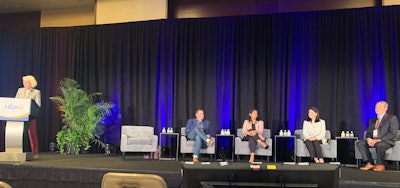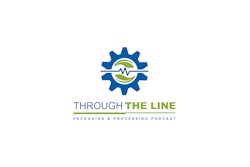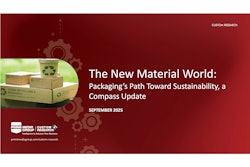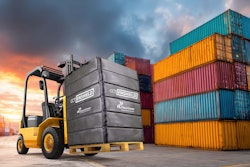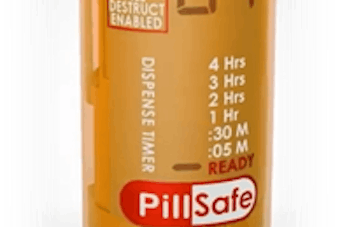Throughout HDA’s Traceability Seminar in Washington D.C. today, experts expressed concerns over undecided exception management processes that could lead to pharmaceutical products in limbo and disrupted supply chains under the Drug Supply Chain Security Act (DSCSA).
There are a number of ways that operations can go awry as saleable units, aggregated cases, and their associated data move through the supply chain. (Check out HDA’s Exceptions Guidelines for the DSCSA.) Often receiving top billing in industry conversations: “Product, no data” exceptions.
As the name implies, this scenario occurs when a trading partner receives a product shipment without data. It may mean that the majority of the shipment and data match, and maybe a single case’s data is missing, or it could be a larger volume issue where an entire truckload (or more) arrives without corresponding data.
In a roundtable on exceptions in the afternoon, Jeff Primeau, vp business solutions at ICS, offered an example. An employee scans Box A before getting distracted by a coworker, and then inadvertently picks up Box B and places it on the pallet when they turn back around. This would result in the downstream trading partner receiving Box B physically, but with Box A’s data.
As Primeau noted, any exception like this will technically result in double the affected product. Not only is Box B held up at the trading partner’s site, but Box A now can’t be shipped anywhere as it scans as “shipped” in the system. One error—two boxes hamstrung. It may not seem like a big deal when talking about two units in the example, but at scale, this could tie up a serious amount of product with millions of units moving around the globe every day. This issue becomes more acute for products requiring temperature control or delicate handling, and therapies in short supply.
Manufacturers and distributors must consider how exception notification and resolution will be handled. This sparked a number of questions that must be worked out by the life science logistics community:
- In the example above, if the trading partner sends an image of Box B’s label to the manufacturer confirming that it matches the manufacturer’s data for Box B, can the box somehow be marked as shipped in the system (and subsequently marked received by the trading partner)?
- Will data correction of this nature be possible, or does it go against the spirit of the DSCSA to alter a product’s data/status?
- Would the trading partner have to send Box B back? Would Box A need to be located and shipped? If the issue is discovered days or weeks later, how will Box A be located in a crowded warehouse?
- Who will perform such a search? With labor already stretched thin, where will manufacturers come up with headcount to deal with the investigation and resolution?
- Can solution providers come up with a process to help automate the resolution of these issues? What tools could the industry benefit from to deal with lot numbers that don’t match, and other exception scenarios?
In a panel discussion, Matt Sample, senior vice president, manufacturer and replenishment operations, AmerisourceBergen Corporation, also reminded attendees that any processes for exception handling need to be real-world ready. “This can happen at one o'clock in the morning. My national distribution center is 24/6. How are you doing off-hour support?” he asked, cautioning manufacturers that if someone ships seven trucks to a centralized hub and he doesn’t receive data, he can’t have his team unload them.
Sample also mentioned a labeling issue we heard weeks ago at an AIM webinar. They’re running into "ink degradation, meaning it was probably good when it left the line six months ago, but now it’s faded,” and can’t be scanned/read properly.
Parting advice from panelists
- Michael J. Mazur, director, trade operations, Pfizer Inc., said they have 500 manufacturers to onboard and they have asked to get them engaged early. “2016 is the first time we did EPCIS exchange—it takes time to get them onboarded. So, we're managing inbound, trying to get our partners to recognize you can't wait until October 2023. In fact, if your project plan says, ‘October 23 go-live,’ you need go back."
- Arthi Nagaraj, manager, serialization, analytics and special projects, Sanofi US: “Get involved. There are a lot of workgroups… HDA, PDG, GS1, everyone is working toward a common purpose. Mike [Mazzur] once told me, ‘You’re not alone, we’re all in this together’ and that’s what I’ll tell you guys. We are in this together. Every company has a slightly different process or a slightly different system, but your company is going through the challenges we’re all going through. Reach out to your trading partners.”
- Julie Malone, regulatory affairs manager, Value Drug Company, said, “We’re going to have a crunch time right now. We’re working as hard as we can," before going on to thank HDA and key members of the community. “It’s an awesome membership—take advantage of that fully and the resources that are out there… Don’t operate in fear. I think a lot of people are operating in fear and misunderstanding, so you have to be proactive in the process. My advice is educate, educate, educate, and implement.”
